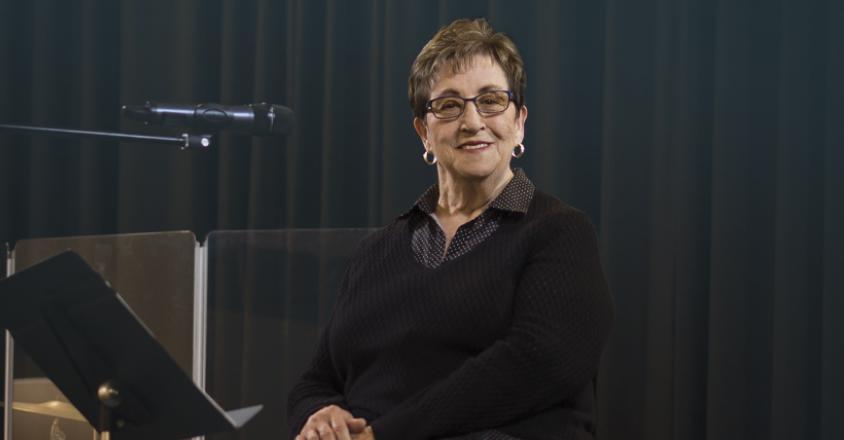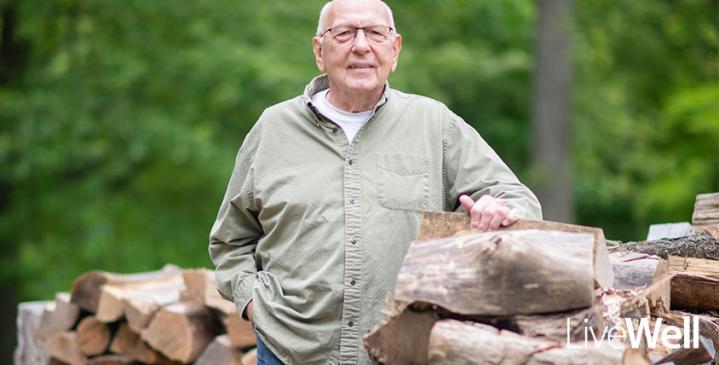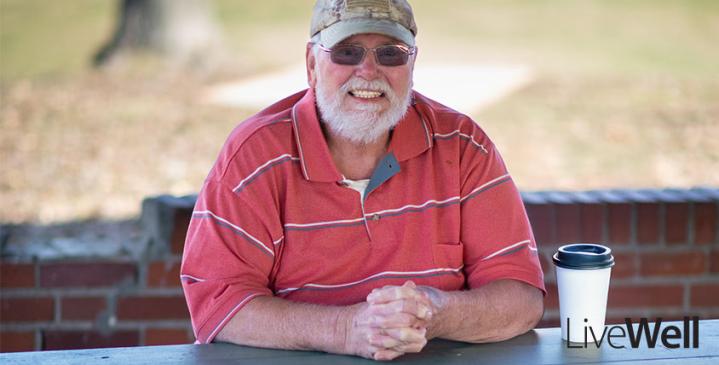

Cardiac Team Resuscitates and Saves Heart Attack Patient
-
Friday, July 17, 2020
- |
Woman survives widow maker, 100 percent blockage
Shelba Kane, a long-time resident of South Zanesville, casually watched TV while the discomfort grew in her chest. Once the pain forcefully struck between her shoulder blades, she got up and told her husband that she needed to get to the hospital. A sense of urgency flooded over her as nausea, dizziness and cold sweats erupted.
EMS arrived quickly and took her to Genesis Hospital – where widow maker heart attacks meet their match. Upon arrival, Brooke Donaldson, M.D., FACEP, emergency medicine specialist, Genesis Emergency & Trauma Services, rushed to Shelba’s bedside and began asking questions, but the conversation ended abruptly when Shelba lost consciousness and her heart stopped beating.
Left descending artery (LAD) is known as widow maker artery
“I started compressions immediately, and our team moved her to a major medical resuscitation room,” Dr. Donaldson said.
Shelba’s situation was grave. She went into cardiac arrest four times and received three electric shocks to restore her normal heart rhythm. The dire situation was caused by a blockage that completely stopped blood from flowing to her left anterior descending artery (LAD). Known as the deadliest kind of heart attack, the widow maker strikes suddenly – and despite its name, the attack can occur in men as well as women.
Dr. Donaldson and her quick-acting emergency team were able to resuscitate Shelba and transport her to the cardiac catheterization lab, where Abdulhay Albirini, M.D., medical director and interventional cardiologist, Genesis Heart & Vascular Services, and his team aimed to re-establish proper blood flow – and fast.
Immediate dilation and stenting to save her life
“With heart attacks, time is crucial,” Dr. Albirini said. “The LAD supplies blood to more than 50 percent of the heart muscle, and Shelba’s was 100 percent obstructed. If patients receive care quickly after the onset of symptoms, we have greater chances of restoring blood flow and saving the heart muscle.”
Dr. Albirini opened Shelba’s blocked blood vessel by dilating a balloon in her LAD. He then carefully placed two stents that permanently prop open the artery. “It’s definitely a life-saving procedure in acute heart attacks,” Dr. Albirini said.
For Shelba, the expert care at Genesis proved to be life-saving and absolutely inspiring. “I feel like I had a miracle,” Shelba said. Though Shelba sees it as a miracle, the Genesis team sees it as their daily routine. Genesis’ skilled hospital professionals care for, on average, 120-130 patients experiencing acute heart attacks each year; with the majority suffering from 100 percent blockage of one of the heart’s three main arteries. Since heart disease holds strong as the leading cause of death among men and women, it’s comforting to know that outstanding emergency and cardiology care is close to home.
Reunited with the medical team to say thank you
“It’s too bad that we see so many people with heart attacks, but at least we can do something about it – we have the skills, experience and technologies to help these patients,” Dr. Albirini said. “There is nothing more gratifying than seeing a patient who survived a heart attack say, ‘You saved my life!’ It’s wonderful.”
Dr. Donaldson agrees. As a Genesis Emergency Department (ED) physician, she stabilizes patients but rarely knows the long-term results of her patients’ progress. That’s why, when Shelba returned to Genesis’ ED to express thanks to team members who kept her alive, Dr. Donaldson felt overcome with emotion. “It was probably one of the most gratifying and humbling experiences I’ve had – to see her walking and talking with her family, to see her back to the person she was before,” Dr. Donaldson said.
Grateful to make heart-healthy changes
Thanks to procedures in the catheterization lab and four days of care at Genesis Hospital, Shelba’s body rallied. Her vitals improved steadily, her blood flowed properly, and she went home to continue her healing. Today, Shelba makes heart health a major priority. To nurture her healing heart, Shelba cherishes time with family and sticks with revolutionary changes in her diet.
“I cut out all junk,” Shelba said. “I switched to a lower sodium and lower fat diet, and I’m eating more fresh fruits and vegetables. I have more energy now, and I feel stronger.” Looking back, Shelba’s heart bursts with gratitude for the Genesis team.
“They’re wonderful. My daughter said she’s never seen anything like the care I got and how hard they worked to keep me alive. Dr. Donaldson saved my life, as did Dr. Albirini (and I think he’s one of the best doctors Zanesville has to offer). They were SO good, it’s hard to put into words,” Shelba said.
Recognize the warning signs of a heart attack
Chest pain (often described as an ‘elephant sitting on the chest’) is the most common symptom of heart attack in men. These symptoms could also be signs of a heart attack:
- Chest pain (heaviness, pressure, tightness, aching, burning or squeezing)
Chest discomfort that lasts more than a few minutes or goes away and comes back
Pain in the arm, left shoulder, back, neck, jaw or stomach
Difficulty breathing or shortness of breath
Sweating or “cold sweats”
Nausea or vomiting
Indigestion or what may feel like heartburn
Dizziness
Extreme weakness
Rapid or irregular heartbeats
Light-headedness
Women can experience different heart attack symptoms
Jaw pain in the lower left side, shoulder pain, and upper back pain are all symptoms women should pay close attention to. Unlike the dramatic, chest-clutching pain in a movie scene, women often experience subtler and sometimes different symptoms for three or four weeks before a heart attack. Other symptoms include:
- Pain in the center of the chest that spreads to the back
Pain that spreads to either arm (usually the left arm in men)
Unusual or extreme fatigue during normal activities
Pain that wakes you up at night
Shortness of breath without exertion
If you are experiencing any one of the symptoms described below that lasts for more than five minutes, SEEK EMERGENCY TREATMENT AND CALL 911 IMMEDIATELY.



